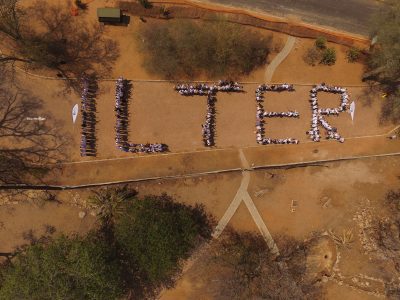Researchers from around the world often struggle with similar challenges, but by coming together to share their experiences, they are improving how they communicate and how they work

Biologist John Kominoski was among a handful of FIU researchers who came together with scientists and partners with an interest in environmental science and policy at the International Long Term Ecological Research Network’s first Open Science Meeting in South Africa last month. They shared research findings and challenges across network research sites.
The International Long Term Ecological Research Network is made up of scientists working to improve what is known about different ecosystems throughout the world and how these ecosystems are changing. This includes the Florida Coastal Everglades Long Term Ecological Research (FCE LTER) program, which is based at FIU. For more than 16 years, researchers from across the United States have been studying how water, climate and people impact the Florida Everglades. It is part of the National Science Foundation’s Long Term Ecological Research Network. By collecting and sharing data, the networks strive to help inform solutions to current and future environmental problems.
At the meeting, Kominoski gave presentations on the FCE LTER program’s role in the international network, core questions that drive the program’s science, and the effects of saltwater intrusion into coastal wetlands along the East Coast of the United States. Kristin Vanderbilt, information manager of the FCE LTER program, gave a presentation on a new initiative that will support the network’s scientists by making their research data accessible through a repository. For Vanderbilt, a long-time researcher in the international network, the meeting was a culmination of years of hard work and dedication by scientists from around the world.
“I have watched the International Long Term Ecological Research Network transform from a loose association of research sites to a cohesive organization of networks working together to research and help solve global environmental problems,” Vanderbilt said. “With this very successful Open Science Meeting, I think the network has finally arrived.”





